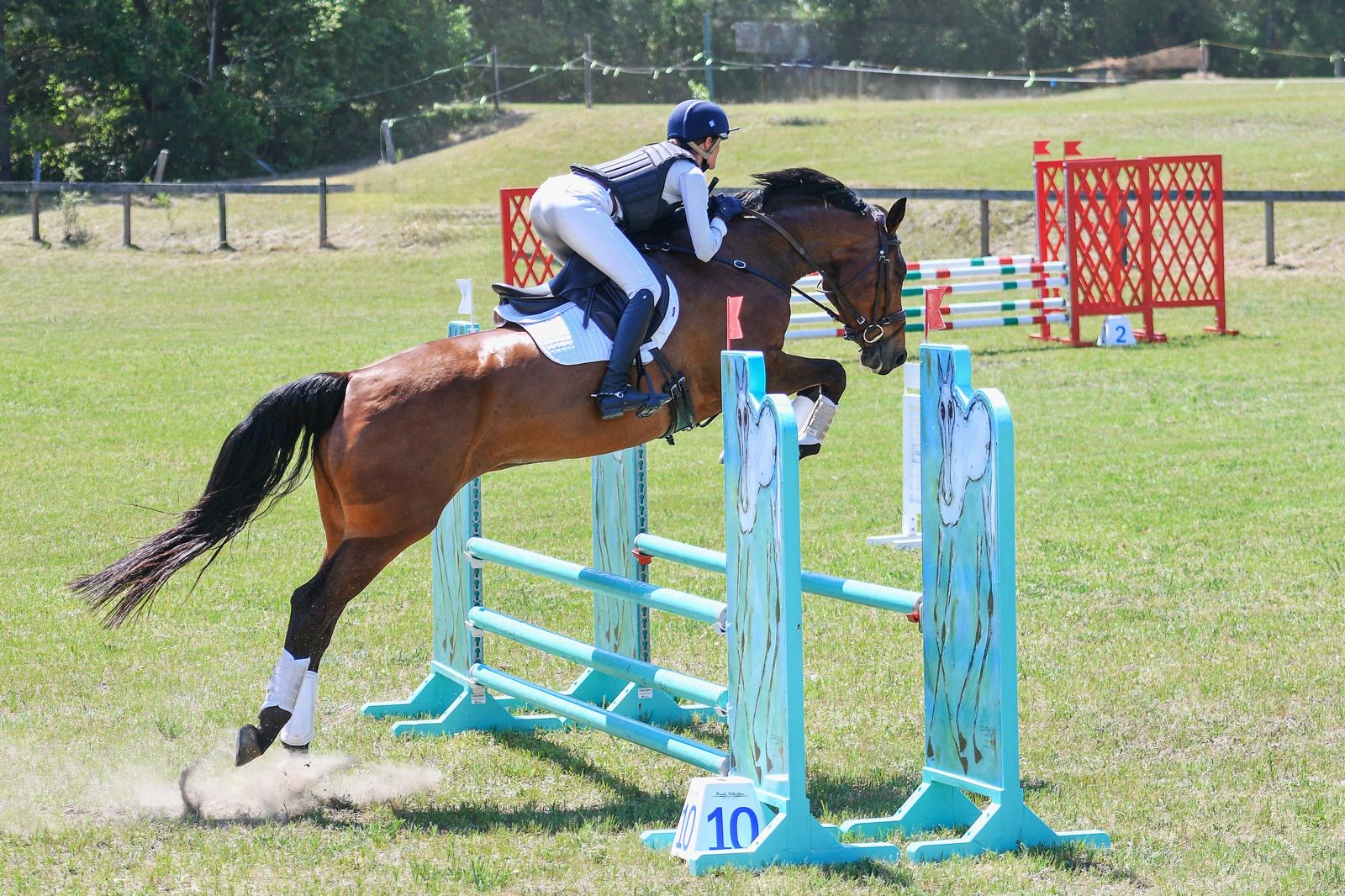As Eventers, we are integrally involved in the Thoroughbred industry, as there are more Thoroughbreds in our sport than any other discipline. We here at Eventing Nation enjoy championing the OTTB sporthorse, and we find their stories endearing and inspiring. The racehorse industry gets a lot of bad press for the sometimes callous way that it regards the animals that keep it going, and there are definitely a lot of ways in which it can improve.
Recently, there was a lot of public outcry over the fate of 9 year old grade I winner-turned-claimer Monzante. This gelding won the grade I Eddie Read Handicap at Del Mar and placed second in the Charlie Whittingham Memorial Handicap (gr. IT) at Hollywood Park in 2008. However, after two years of poor performances, he only managed to win one allowance race and he was shuffled from one trainer to another. This year, his career ended in a $4,000 claiming race at Evangeline Downs, where he fractured sesamoids in his right front leg and was subsequently euthanized.
Monzante’s life and death led to a lot of questions about how the racing industry treats their athletes. The response was similar to that of Eight Belles’ breakdown in the 2008 Kentucky Derby, won by Big Brown, which subsequently lead to a ban of anabolic steroids in horse racing. We ask ourselves, can’t something be done about this disgraceful end to a beautiful and successful animal who competed at the top ranks? Eric Mitchell, editor-in-chief of The Blood Horse, shares his thoughts and commentary on the various welfare issues that face Thoroughbreds today.
From The Horse:
For Monzante, the issues are much trickier. Racing fans expressed a gut-level disgust at a grade I winner being passed from owner to owner until he had dropped toward the bottom of the claiming ranks—not quite the bottom but pretty close. The calls for reform have included eliminating claiming races, forcing the retirement of graded stakes winners when their careers start to wane, requiring more effective pre-race exams, and encouraging more industry support for retirement/aftercare facilities.
Let’s take them one at a time.
The elimination of claiming races would completely gut the North American racing industry as we know it and would likely shut it down entirely. Claiming races, which provide the means for an owner to buy a racehorse in training, account for 67.3% of all races in the United States, Canada, and Puerto Rico, according to statistics maintained by The Jockey Club. Around 38% of all purse money is distributed through claiming races, which is more than $452.5 million annually. These statistics do not include maiden claiming races that make up nearly 19% of all races and almost 12% of North American purses.
As to the forced retirement of horses, there are likely teams of lawyers sitting on drafts of cease and desist orders just waiting for someone to try. While it offends some fans’ sensibilities of right and wrong, horses are private property and how they’re cared for is largely at the discretion of their owners. We have animal cruelty laws, but in Monzante’s case, Thacker had just brought the horse back off a long layoff for a “mental break” and said the gelding had come back refreshed. Monzante then passed a pre-race veterinary exam and was determined to be racing sound. Thacker said he only raced Monzante in the claiming race to make him eligible for a starter allowance, where he thought he would be competitive.”
While I feel that in recent years the public has become much more aware of the needs of the Thoroughbred after racing, we still have a long way to go. There is such a vast number of Thoroughbreds bred and raced every year, that it isn’t surprising that we simply cannot create enough ways to take care of each and every one in the proper way. Eventing is surely making great attempts with the OTTB prizes that are now common at competitions, and even the advent of the Thoroughbred Celebration Show is a huge promotional advantage for the breed.
In the end, however, we will always struggle with the ability to create laws that protect every horse. There need to be programs which reward owners and trainers for making smart decisions based on the horse’s welfare, and they should be as important as succeeding in the racing realm. As Eric Mitchell puts it, “Because in the end, horse care comes down to personal responsibility, which can’t be legislated. Let’s make it easy and rewarding for owners to do the right thing.”




















